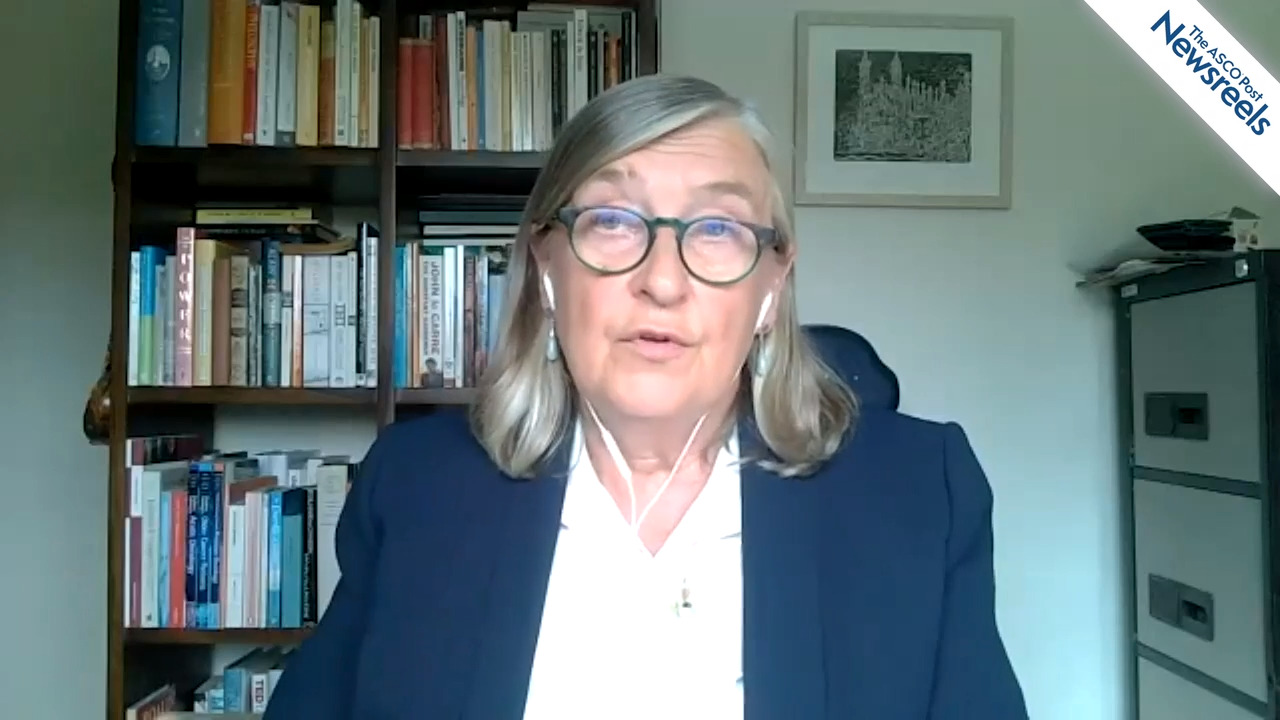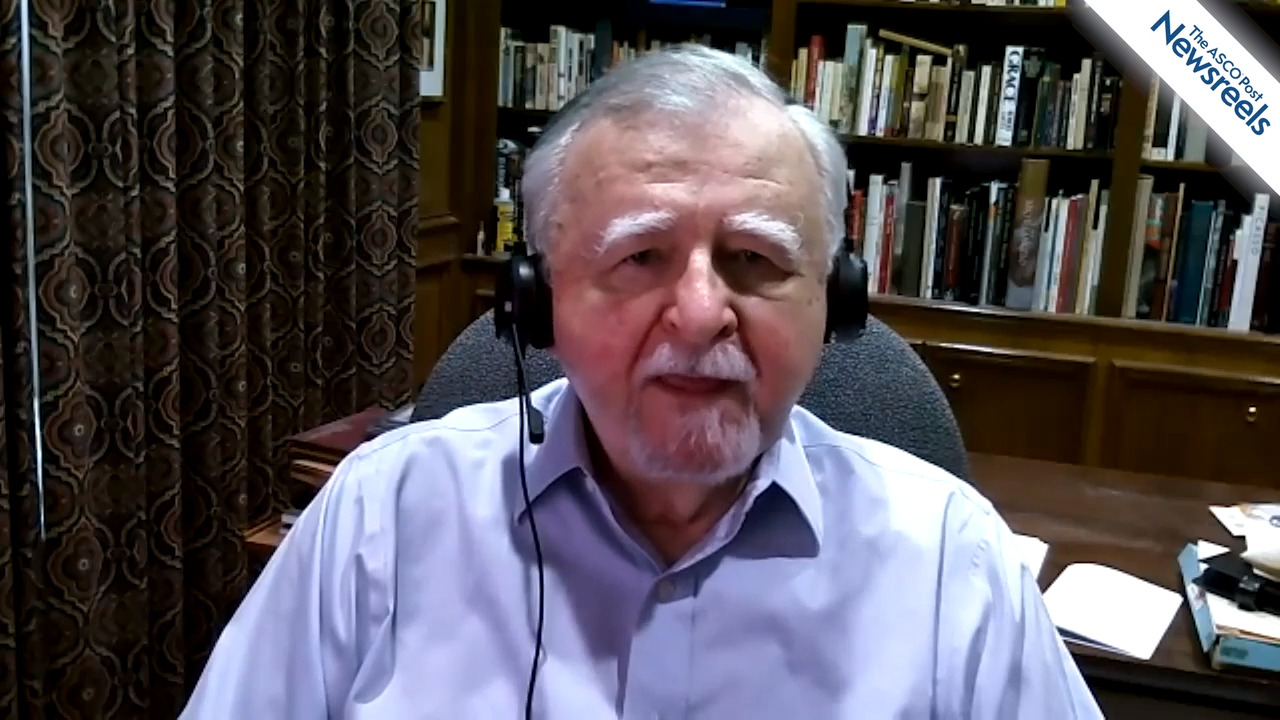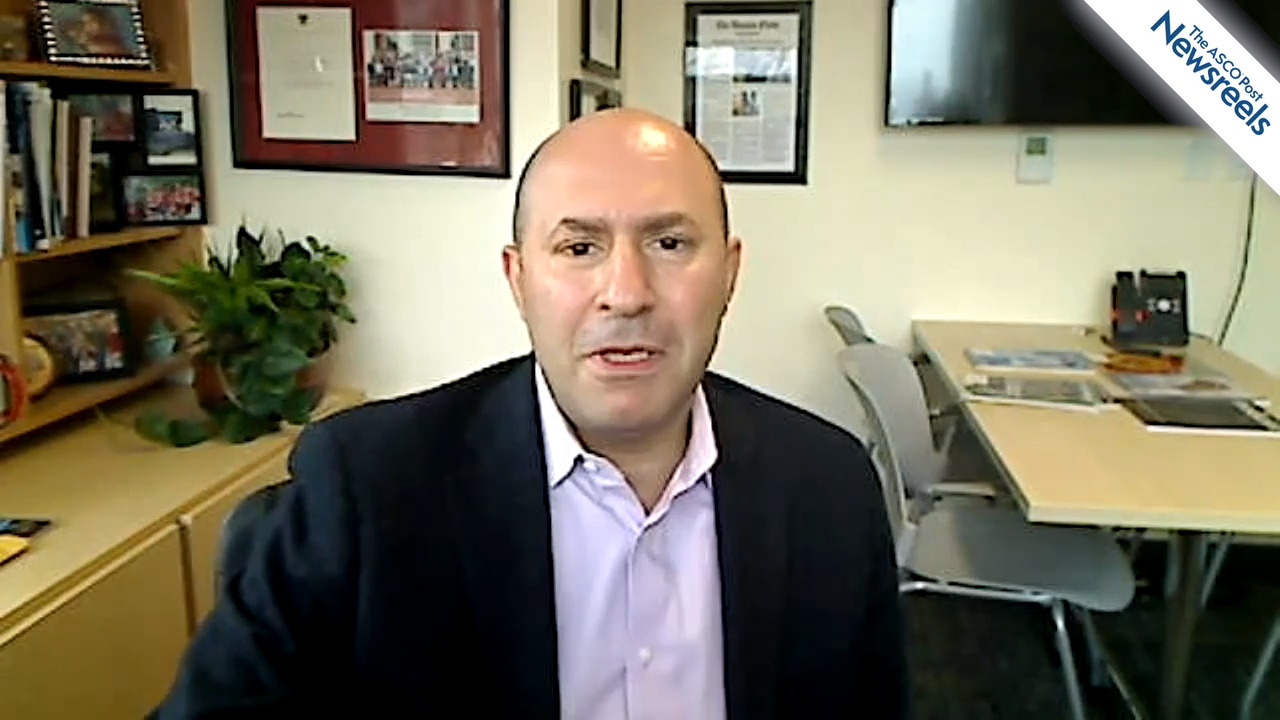Neeraj Agarwal, MD, on Advanced Prostate Cancer: Data on Cabozantinib Plus Atezolizumab
ESMO Congress 2021
Neeraj Agarwal, MD, of Hunstman Cancer Institute at the University of Utah, discusses efficacy and safety results from the COSMIC-021 study, in which cabozantinib plus atezolizumab demonstrated clinically meaningful activity and a manageable safety profile in patients with metastatic castration-resistant prostate cancer. The findings support a phase III study of these agents vs a second line of novel hormonal therapy (Abstract LBA24).
The ASCO Post Staff
Nicoletta Colombo, MD, of the Istituto Europeo Oncologico, discusses phase III results that showed improvements in progression-free and overall survival with a combination of pembrolizumab plus chemotherapy, compared with placebo and chemotherapy, for patients with persistent, recurrent, or metastatic cervical cancer. These benefits were seen regardless of PD-L1 expression and concomitant bevacizumab use, suggesting that pembrolizumab plus chemotherapy, with or without bevacizumab, may be a new standard of care for this population (Abstract LBA2).
The ASCO Post Staff
Susana N. Banerjee, MBBS, PhD, of The Royal Marsden NHS Foundation Trust, discusses phase I results that have generated interest in the combination of the RAF/MEK inhibitor VS-6766 and the FAK inhibitor defactinib for patients with recurrent low-grade serous ovarian cancer, a disease that typically has limited response to conventional chemotherapy and hormonal therapy. The data support ongoing investigation (Abstract 725MO).
The ASCO Post Staff
Helena M. Earl, MBBS, PhD, of the University of Cambridge, discusses an individual patient data meta-analysis of noninferiority randomized clinical trials to determine whether a duration of less than the standard of 12 months of adjuvant trastuzumab is noninferior for treatment outcomes in patients with HER2-positive early breast cancer (Abstract LBA11).
The ASCO Post Staff
Gabriel N. Hortobagyi, MD, of The University of Texas MD Anderson Cancer Center, discusses results from the MONALEESA-2 trial, which showed that adding the CDK4/6 inhibitor ribociclib to first-line hormonal therapy prolongs survival by 1 year for postmenopausal women with hormone receptor–positive, HER2-negative advanced breast cancer. As a result, he believes it should be considered the preferred treatment option (Abstract LBA17).
The ASCO Post Staff
Toni K. Choueiri, MD, of Dana-Farber Cancer Institute, discusses patient-reported outcomes for quality of life in the KEYNOTE-564 study, which previously met its primary endpoint of disease-free survival with adjuvant pembrolizumab vs placebo following surgery for renal cell carcinoma (Abstract 653O).





